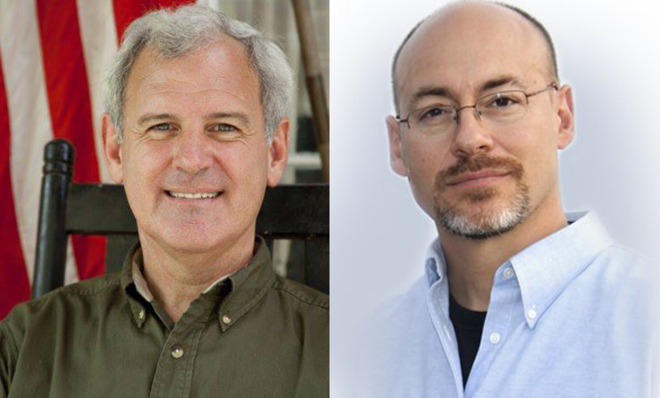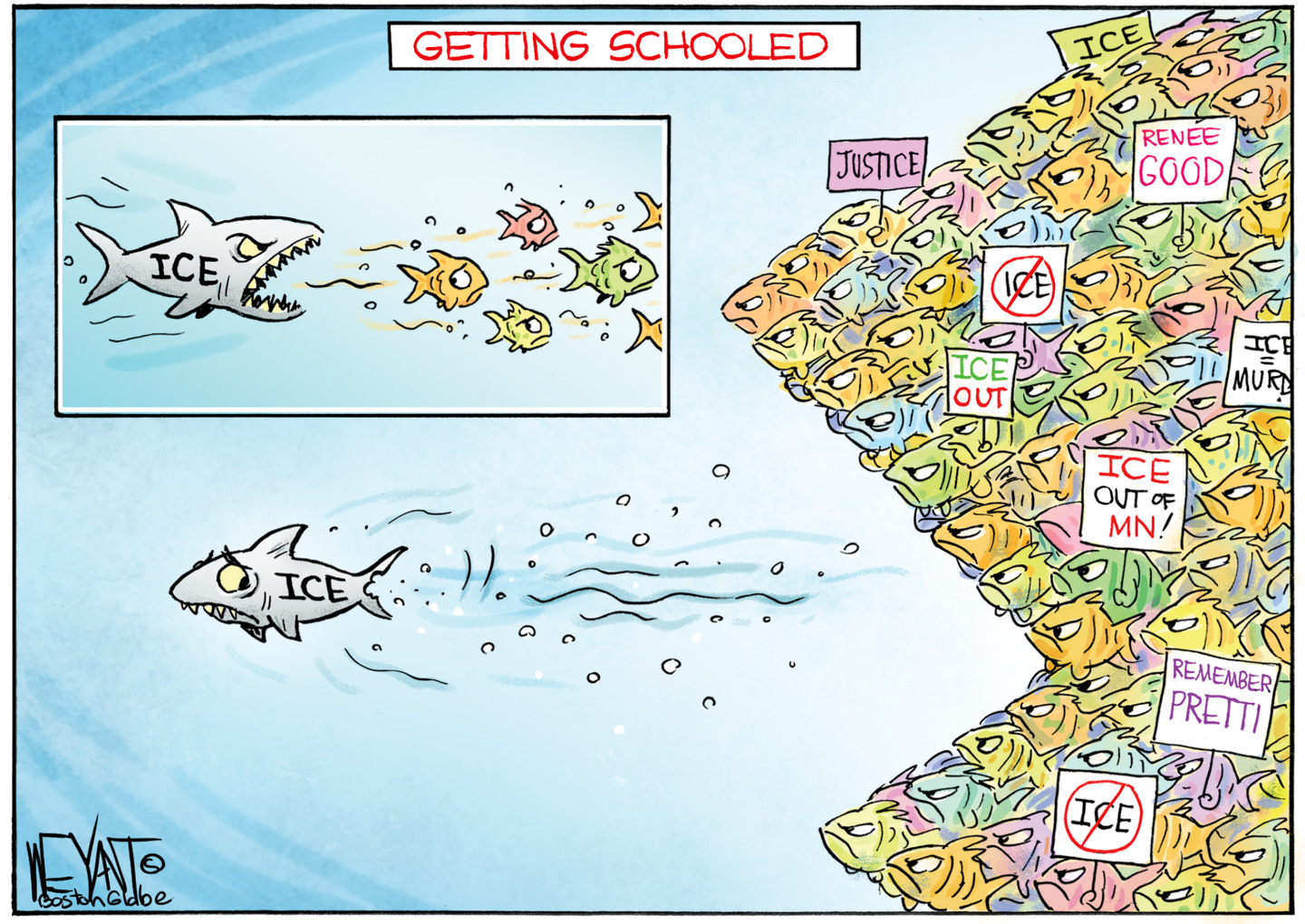Why Alabama's GOP House primary may be the most important election in the country
Establishment Republicans are wringing their hands over yet another potential defeat at the hands of the Tea Party


As the government shutdown laid bare, Republicans have an all-out civil war on their hands, one that is pitting establishment types against Tea Party insurgents.
On Tuesday, the battle shifted to Alabama, where GOP voters cast ballots in the runoff election to choose the party's nominee for the state's 1st Congressional District. Though the race hardly has the star power of, say, New Jersey's gubernatorial contest, it could very well offer the most intriguing glimpse of any of Tuesday's races into the future of the Republican Party.
The race, between former state Senator Bradley Byrne and Tea Party-aligned activist Dean Young, presents the Alabama GOP with a choice between two deeply conservative candidates. Both are outspoken Christians and social conservatives who oppose the deal that ended the government shutdown.
The Week
Escape your echo chamber. Get the facts behind the news, plus analysis from multiple perspectives.

Sign up for The Week's Free Newsletters
From our morning news briefing to a weekly Good News Newsletter, get the best of The Week delivered directly to your inbox.
From our morning news briefing to a weekly Good News Newsletter, get the best of The Week delivered directly to your inbox.
Of the two, though, Young's populist Tea Party streak places him further to the right. Byrne is an established politician endorsed by the Chamber of Commerce who talks about solving problems through cooperation; Young is a polemic firebrand who thinks President Obama was born in Kenya and describes his own supporters as "pitchfork people."
So although they share common political beliefs, they have very different ideas about what the modern GOP should look like. Young has turned the contest into a referendum on the party at large, labeling Byrne a "country club Republican" and suggesting his opponent would be more of the same in Washington. Byrne, meanwhile, has hammered Byrne as a crank with no real policies.
"If you’re looking for somebody who's just going to go up there and fight, he's your guy," Byrne said at a recent event. "If you’re searching for somebody who's going to up there and fight and be effective, I'm your guy."
In that way, the election has become not a simple choice between two candidates, but rather a choice about "what tactics Republican activists think will be most successful as the next budget showdown looms," says the Daily Beast's Ben Jacobs. It's the same choice congressional Republicans are facing between the "suicide" and "surrender" caucuses, as they've been derisively referred to by their respective opponents.
A free daily email with the biggest news stories of the day – and the best features from TheWeek.com
It could also set a pattern for future elections, with an insurgent raising money based on resentment toward the Republican Party itself. Michael Gerson at The Washington Post explained the troubling implications of such a development:
The result is a paradox. Over the past few decades, Republican members of Congress have become more reliably conservative (as their Democratic colleagues, to a lesser extent, have become more liberal). Liberal Republicanism has essentially ceased to exist. This means that tea party conservatives are revolting against a more uniformly conservative party. The RINOs they hunt are actually an endangered species. [The Washington Post]
Still sore from the government shutdown, business interests are stepping in, saying they would boost business-friendly Republicans in future primary elections. And indeed, in Alabama, they've poured money into the race to give Byrne an 8-1 fundraising advantage. The Chamber of Commerce alone has spent nearly $200,000 promoting Byrne's candidacy.
To be sure, extrapolating too much from one provincial race could be problematic. It is, after all, only one contest in one very, very Republican district, where GOP voters aren't necessarily representative of the party as a whole. (The district is so heavily Republican that former Rep. Jo Bonner (R), who stepped down earlier this year to set up the primary, captured 98 percent of the vote in 2012.)
Yet the race's overarching dynamic of establishment vs. Tea Party — and the extent to which the business community has gone all in to sway not a general election, but a primary — could serve as a microcosmic preview of what lies ahead for the GOP in 2014 and beyond.
Jon Terbush is an associate editor at TheWeek.com covering politics, sports, and other things he finds interesting. He has previously written for Talking Points Memo, Raw Story, and Business Insider.
-
 Bad Bunny, Lamar, K-pop make Grammy history
Bad Bunny, Lamar, K-pop make Grammy historySpeed Read The Puerto Rican artist will perform at the Super Bowl this weekend
-
 Political cartoons for February 2
Political cartoons for February 2Cartoons Monday’s political cartoons include ICE getting schooled, AI in control, and more
-
 Democrats win House race, flip Texas Senate seat
Democrats win House race, flip Texas Senate seatSpeed Read Christian Menefee won the special election for an open House seat in the Houston area
-
 The billionaires’ wealth tax: a catastrophe for California?
The billionaires’ wealth tax: a catastrophe for California?Talking Point Peter Thiel and Larry Page preparing to change state residency
-
 Bari Weiss’ ‘60 Minutes’ scandal is about more than one report
Bari Weiss’ ‘60 Minutes’ scandal is about more than one reportIN THE SPOTLIGHT By blocking an approved segment on a controversial prison holding US deportees in El Salvador, the editor-in-chief of CBS News has become the main story
-
 Has Zohran Mamdani shown the Democrats how to win again?
Has Zohran Mamdani shown the Democrats how to win again?Today’s Big Question New York City mayoral election touted as victory for left-wing populists but moderate centrist wins elsewhere present more complex path for Democratic Party
-
 Millions turn out for anti-Trump ‘No Kings’ rallies
Millions turn out for anti-Trump ‘No Kings’ ralliesSpeed Read An estimated 7 million people participated, 2 million more than at the first ‘No Kings’ protest in June
-
 Ghislaine Maxwell: angling for a Trump pardon
Ghislaine Maxwell: angling for a Trump pardonTalking Point Convicted sex trafficker's testimony could shed new light on president's links to Jeffrey Epstein
-
 The last words and final moments of 40 presidents
The last words and final moments of 40 presidentsThe Explainer Some are eloquent quotes worthy of the holders of the highest office in the nation, and others... aren't
-
 The JFK files: the truth at last?
The JFK files: the truth at last?In The Spotlight More than 64,000 previously classified documents relating the 1963 assassination of John F. Kennedy have been released by the Trump administration
-
 'Seriously, not literally': how should the world take Donald Trump?
'Seriously, not literally': how should the world take Donald Trump?Today's big question White House rhetoric and reality look likely to become increasingly blurred
